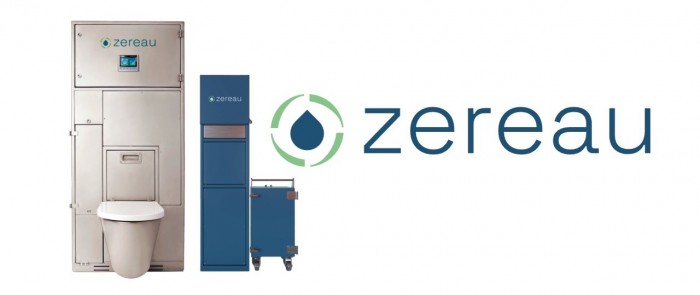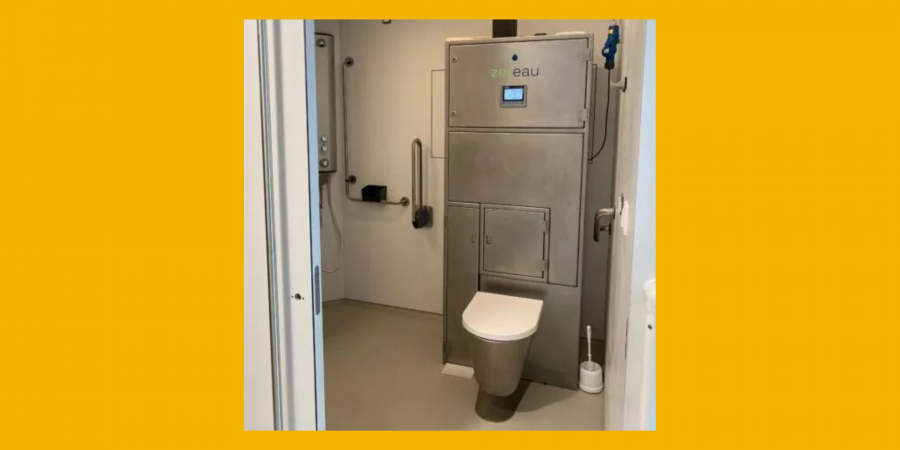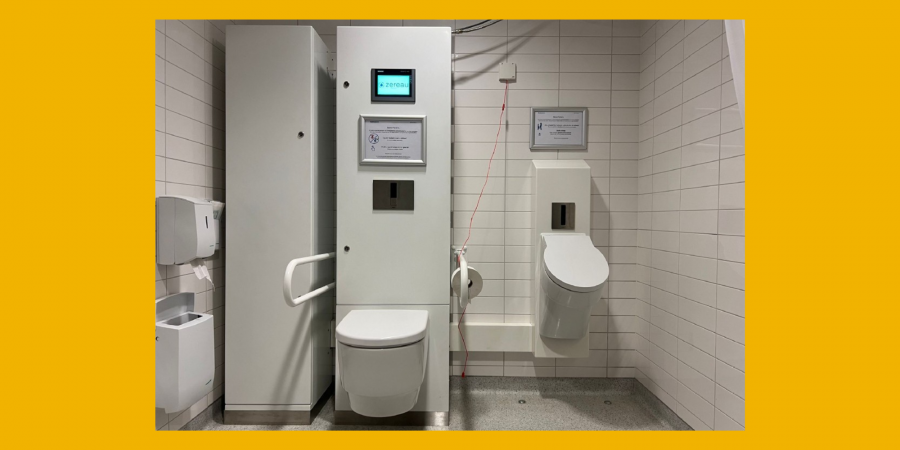Flushing the problem away: A better solution for patient waste in Nuclear Medicine
10th July 2025

At a glance
> The increasing use of Molecular Radionuclide Therapies (MRT) for cancer treatment means more radioactive human waste is entering the water supply through patient excretion.
> To address this, Southern Scientific has partnered with Zereau, manufacturers of the world’s first toilet filtration systems for nuclear medicine and radiology.
> Proven to remove 99.995% of radioactivity, the toilets help remove limitations on the treatment capacities of Nuclear Medicine and Radiology Departments.
Growing MRT treatments, growing regulatory pressure
Molecular Radionuclide Therapies (MRT), such as 177Lu and 131I therapies, are continuing to emerge because of rising clinical demand and advances in personalised medicine. But with their increasing use comes a largely overlooked challenge: radioactive waste management.
In the UK, hospitals operate under strict permits issued by the Environment Agency or equivalent regulators in devolved nations. These permits set limits on:
> The total volume of radioactive waste that can be stored or discharged.
> The level of radioactivity that can be released into the environment.
A waste problem, not a clinical one
This means there is a ceiling - not on how many patients could be treated - but on how much radioactive waste a hospital is licensed to handle. As MRTs grow, hospitals risk hitting these limitations, even as patient demand continues to rise.
The more MRTs are administered, the more radioactive material is excreted by patients. This poses a particular challenge with theragnostic isotopes like 177Lu, where between 30-50% of the administered dose can be excreted in urine within four hours of injection (Kurth et al., 2017)1. These radionuclides have longer half-lives than traditional diagnostic imaging isotopes meaning they persist for longer in the environment. However, water treatment plants cannot detect or remove radioactive material, raising concerns about bioaccumulation and the contamination of sources of drinking water.
A new partnership with Zereau
Hospitals face the very real possibility of a treatment bottleneck dictated by waste capacity, not clinical infrastructure or demand. The current alternative to discharging human effluent is to hold it in waste storage tanks until the radioisotopes have decayed. This places limitations on treatment capacity as it requires the storage of substantial volumes of radioactive human waste until it reaches an acceptable decay level for release.
Rather than having to treat contaminated wastewater after it has been released into the environment, the most effective solution is filtration and capture at its source. That is why Southern Scientific has partnered with Zereau. Based in the Netherlands, Zereau is the world’s first manufacturer of toilet filtration systems designed specifically for nuclear medicine and radiology.
Eliminating 99.995% of radioactivity

A RadiCatch installed at the University Hospital of Liege in Belgium used by patients undergoing 177Lu-DT and 177Lu-PSMA therapies.
Zereau produce two toilet filtration systems: one for nuclear medicine and one for radiology.
The RadiCatch for nuclear medicine can work as a standalone unit or plumbed into existing hospital sewage channels. It first separates urine from faeces and then removes radioactivity, significantly reducing the amount of waste needed to be stored before release. Its filters have been verified to eliminate as much as 99.995% of nuclear waste, providing safe containment and handling procedures
The ContrastCatch for radiology is exclusively for urine. Contrast agents are dosed in large quantities and quickly excreted by patients. 40 – 50% of administered contrast agents are excreted through urine.

A ContrastCatch installed at Radboud University Hospital in the Netherlands where it is used by patients dosed with IBCM (Iodine-Based Contrast Material) for cardiology research.
Reducing wastewater, increasing treatment capacity
These slimline systems can be retrospectively installed in existing patient toilets in Nuclear Medicine and Radiology Departments. In many cases, a sewage or decay tank connection is not required. All that is needed is a normal water connection and an electrical socket. Made of stainless steel, the systems are easy to clean and decontaminate with an internal automatic disinfectant function.
The NHS is investing heavily in new MRT services, but without a corresponding approach to how radioactive human waste is managed, hospitals may find themselves unable to scale, not because of clinical capacity but because of environmental regulation.
Find out more
To learn more about Zereau’s toilet filter systems, please click the button below to speak to a product specialist directly.
References
1 External radiation exposure, excretion and effective half-life in Lu-177-PSMA-targeting therapy, Kurth et al., 2017.